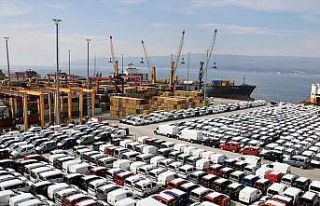By Shuriah Niazi
New Delhi (AA) – Allaying fears on the citizenship row in its northeastern province of Assam, India on Sunday said that nearly two million people excluded from the citizenship register, will not be detained or deported immediately, till they exhaust all legal means.
Amid global concerns that these people will be rendered stateless, the Spokesperson of Ministry of External Affairs Raveesh Kumar said they will continue enjoying all rights as before.
“Exclusion from the National Register of Citizens has no implication on the rights of an individual resident in Assam. It does not make the excluded person stateless. It also does not make him or her a foreigner, within the legal meaning of the term. They will not be deprived of any rights or entitlements which they have enjoyed before,” he clarified.
The list of citizens was published on Aug. 31, in which names of 1.9 million people were excluded.
India’s clarification came in the wake of apprehensions raised in global media, about the fate of a large population. Kumar said such apprehensions are "incorrect".
He said that anyone excluded from the list at this stage has a right to file an appeal within 120 days of receiving a notification of exclusion, to the designated tribunal.
“All appeals and excluded cases will be examined by this tribunal. This judicial process will commence only after the appellate period is over. Thereafter, anyone still aggrieved by any decision of being excluded will have the right to approach the High Court of Assam and then the Supreme Court,” he added.
The UN High Commissioner for Refugees had issued a statement on Sunday calling India, to follow due process, to ensure those excluded are not made stateless.
The NRC list is unique to northeastern province of Assam bordering Bangladesh. It was first tabulated in 1951, four years after independence from British rule, to distinguish Indian citizens from illegal migrants from then East Pakistan.
The new list includes only those people or their descendants, who had entered India till midnight of March 24, 1971, when Bangladesh became an independent nation.
Pakistani Prime Minister Imran Khan on Sunday also raised the issue, criticizing the Indian government for handling of the citizenship rolls. He described it a part of a violent effort by the ruling Bharatiya Janata Party (BJP) to carry out “ethnic cleansing” of local Muslims.
“This ideology sees Hindus as superior to all other groups in India,” he told an annual convocation of the Islamic Society of North America though video conference.
The fears were also raised after Assam Finance Minister and an influential BJP leader Himanta Biswa Sarma said that ‘friend’ Bangladesh would be approached to take back its people, following the declaration of citizenship list.
Reacting to the statement, Bangladesh Home Minister Asaduzzaman Khan told Indian TV channels that no one from his country had moved to India after 1971. “It is purely an internal matter of India and we have nothing to do with it,” he said.






















